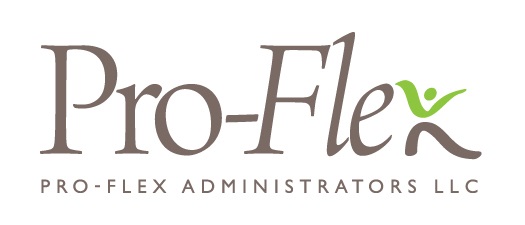May 2014
Welcome to May! The end of this month is when most people consider the transition into the summer season to begin. As the unofficial Memorial Day to Labor Day season arrives, employers should prepare beforehand to address summer dress codes, effectively manage vacation requests and flexible work schedules.
HR Alerts
New IRS Guidance: Qualified Retirement Plans Must Recognize Same-Sex Marriages Retroactively to June 26, 2013
The IRS has recently issued guidance on how qualified retirement plans (such as 401K plans, profit sharing plans, defined benefit pension plans and 403B plans) should apply the Supreme Court’s 2013 Windsor decision, which ruled that same-sex marriages must be recognized for all federal tax purposes. While the IRS had already issued guidance indicating that all qualified retirement plans would need to prospectively recognize all same-sex marriages, it had not addressed whether plans would need to be retroactively amended to either the date of the Windsor ruling or to another date. This guidance clarifies that qualified retirement plans that have sections that would not comply with the Windsor ruling (for example, plans that refer to opposite- sex couples) must be retroactively amended to recognize same-sex spouses effective June 26, 2013. The deadline to adopt a plan amendment to this effect is the later of: 1) December 31, 2014 or 2) the cyclical remedial plan amendment period under section 5.05 of Rev. Proc. 2007-44.
Affordable Care Act- Congress Eliminates Cap on Deductibles
The deductible cap for small group health plans under the Affordable Care Act has been permanently removed. Originally, the Affordable Care Act (ACA) had a provision that capped the deductible for individual and small group health plans at $2,000 for individuals and $4,000 for families. Last year, when it became evident that it would be difficult for many plans to comply with that requirement, the Health and Human Services Department issued a waiver for 2014. Now, through a bipartisan effort, that provision has been eliminated entirely in an effort to help issuers to design plans that work well for small business owners. It will also allow small businesses to continue trending towards High-Deductible Health Plans coupled with Health Savings Accounts. However, there are many other plan design requirements delineated in the ACA that still apply to small employers, including the limit on out-of-pocket maximums for essential health benefits.
Salary and Benefit Surveys: Can I Ask My Competitors How Much They Pay?
Our clients often inquire as to whether their employee compensation and benefit packages are competitive with respect to current market conditions and industry standards. In fact, it is an HR best practice to evaluate the company’s compensation and benefit programs on an annual basis. So where do you begin to get accurate and timely industry data for benchmarking purposes?
Often, the best resource for this information is your industry’s professional organization. Many professional and industry organizations collect data from their members regarding compensation and benefit standards on a regular basis. Thus, if you are a member of a professional organization, we recommend inquiring as to whether they publish such data for their members’ use.
Another valuable resource is the Department of Labor’s Occupational Employment Statistics (OES) database. OES estimates are published on the Bureau of Labor Statistics’ website. Included within this compilation are cross-industry data for a variety of positions within the United States as a whole, for individual states, and for major U.S. metropolitan areas. The website address for OES data is: www.bls.gov/oes. The data published here tends to lag approximately one year behind the current date. For example, the most recently compiled data was last updated in May 2013.
A third resource is the utilization of private salary survey data available for purchase through private organizations. If you opt to use this alternative, we recommend first researching the vendor’s methodology of data collection to ensure that it is relevant for your purposes. Some of these organizations simply synthesize the OES Data and provide it to you for a fee, so you will want to ensure that you are receiving value added data which is actionable and useful for your organization’s benchmarking needs.
A final option is to directly survey your competitors. While this might sound tempting, we do not recommend it. Employers are not allowed to collude with competitors to fix salaries and even casual conversations about salary levels may open you up to liability. To ensure that you are not inadvertently violating antitrust law, the U.S. Justice Department recommends having compensation surveys managed by third parties using data that is at least three months old from at least five entities.
Regardless of where you obtain the data, there are some universal items to consider when using the compensatory information for benchmarking purposes:
Consider the source of the data (organization size, industry, client profile, etc.)
Ensure the collection methodology is has produced results that are statistically credible (both valid and reliable)
Confirm that the information is geographically relevant to your organization
Check the data collection year for relevance
Ensure that the position titles and job descriptions closely align with those of your organization
Determine whether the survey includes the typical education and experience level for the reported data
Consider whether the survey is reporting the total compensation package or salary alone
When performed and filtered correctly, salary survey data can provide useful and actionable information to assist your organization in attracting and retaining top talent. So, find a benchmarking method that works for your company, and ensure that your compensation levels are where you want them to be.
Question & Answer
Q: As an employer, what can I do to stop employees from using e-cigarettes in the office? Is there a law against this activity?
A: Electronic cigarettes and other vapor products have been on the rise in the past several years. Whereas there is continued debate regarding the safety of vapor products, no federal law prohibiting the use of e-cigarettes or vapor products has been passed to date. Some municipalities have passed laws prohibiting the use of vapor products indoors or common areas.
That said, if you would like to prohibit your employees from using vapor products or smoking e-cigarettes in the workplace, we recommend that you update your non-smoking policy to include these products and enforce the policy in a non-discriminatory and consistent manner.
Managing Conflicts of Interest in the Workplace
A challenging subject for many employers involves the intricate balance between establishing solid relationships with clients, customers and vendors and ensuring that those relationships do not transition to one that is an actual or perceived conflict of interest.
By definition, a conflict of interest is a situation or circumstance that creates risk of a professional decision or action being persuaded by an external factor. Employers face such situations when employees engage in secondary employment with a potential competitor or in activities that may create an actual or apparent conflict of interest.
It is recommended that employers implement a conflict of interest policy in the workplace, as well as a specific policy defining the company’s practices with regard to business gifts. A thorough conflict of interest policy will define this subject matter and address the parameters of employer expectations with regard to an employee’s relationship with competitors or clients, as well as the types of activities that an employee could potentially engage in outside of work.
The policy must convey the employer’s expectations of its employees; however, it is critically important that the policy does not establish protocol that could infringe upon employee rights under Section (7) of the National Labor Relations Act (NLRA).
When crafting a business gifts policy, it is crucial that an employer sets specific guidelines, such as a dollar amount of a gift’s value. In addition, the policy should educate employees regarding the reporting procedure indoctrinated by the company in the case that employees are unsure of the appropriateness of a business gift.
Employers should also bear in mind that exceptions may need to be made on occasion, such as when refusing a gift could potentially jeopardize the organization’s ongoing relationship with the client. This decision should be made by a member of management and it should be treated as an exception for business purposes.
Ultimately, the business gifts policy should be clearly written and detailed with regard to the types of gifts that will be deemed acceptable as well as the maximum dollar amount of such a gift. This will promote consistency in an employer’s practices while supporting its stance on conflicts of interest in the workplace.

